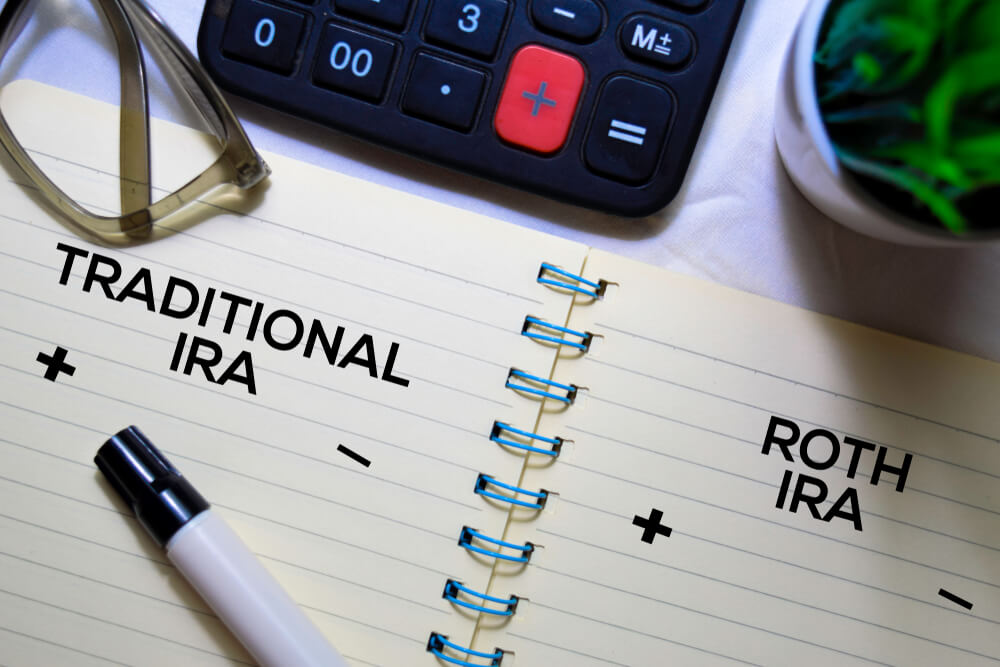Retirement planning is a crucial aspect of financial management, and choosing the right investment vehicle can significantly impact your future. In this regard, Roth IRAs and Traditional IRAs are two popular options, each with unique features and benefits. Understanding their differences and aligning them with your financial goals is essential in determining which is better for your retirement savings.
Understanding Roth and Traditional IRAs
Roth IRA vs. Traditional IRA: The Fundamental Differences
The primary distinction between a Roth IRA and a Traditional IRA lies in their tax treatment. With a Roth IRA, your contributions are made with after-tax dollars, meaning you pay taxes upfront. However, this allows for tax-free growth and withdrawals in retirement. In contrast, contributions to a Traditional IRA are often tax-deductible, reducing your taxable income in the contribution year. Taxes are then paid upon withdrawal during retirement. If you’re unsure of which IRA to select, it’s recommended to meet with an experienced financial advisor for guidance and insight.
Contribution Limits for 2024
For both types of IRAs, the Internal Revenue Service (IRS) sets contribution limits. In 2024, the limit is $7,000 for individuals under 50 and $8,000 for those 50 and older. These limits are critical to consider when planning your annual retirement contributions.
Evaluating the Benefits: Which IRA Suits You?
Advantages of a Roth IRA
Roth IRAs offer several advantages, especially for those anticipating a higher tax bracket in retirement. The tax-free growth and withdrawal are the most significant benefits, providing peace of mind and predictability in your retirement income. Furthermore, Roth IRAs do not require minimum distributions (RMDs), allowing your investments to continue growing tax-free for as long as you choose. This feature not only benefits you but can also be advantageous if you plan to leave these assets to your heirs.
When a Traditional IRA Makes Sense
A Traditional IRA is often more appealing to individuals currently in a higher tax bracket who expect to be in a lower one upon retirement. The immediate tax deduction can provide substantial tax relief in the present, making it an attractive option for reducing current tax liabilities. However, keep in mind that RMDs are mandatory, starting in your early 70s, which requires careful planning to optimize tax efficiency in retirement.
Choosing the Right IRA: Factors to Consider
Current and Future Tax Brackets
Your current and anticipated future tax situations are pivotal in deciding between a Roth and Traditional IRA. If you expect to be in a higher tax bracket in retirement, a Roth IRA’s tax-free withdrawals are advantageous. Conversely, if you predict a lower tax bracket post-retirement, the Traditional IRA’s immediate tax benefits could be more beneficial.
Flexibility and Required Minimum Distributions
Consider your need for flexibility in retirement. Roth IRAs offer more leeway, with no RMDs, allowing your savings to potentially grow larger over a more extended period. Traditional IRAs, while having RMDs, might be better for those who prefer structured withdrawals.
Long-Term Retirement Goals
Your long-term retirement goals, including the desire to leave assets to heirs or the need for a more predictable tax-free income in retirement, should influence your choice. Roth IRAs offer the advantage of tax-free inheritance for beneficiaries, making them an attractive option for legacy planning.
Conclusion

Both Roth IRAs and Traditional IRAs are excellent savings vehicles, each with distinct advantages. The best choice depends on individual factors like current and future tax situations, retirement goals, and the need for flexibility. Carefully evaluating these aspects will guide you in selecting the most suitable option for your retirement savings plan.
Remember, the key to successful retirement planning is not just choosing between a Roth or Traditional IRA but also ensuring consistent contributions and strategic financial planning throughout your working years. For more personalized advice or to discuss your specific financial situation, don’t hesitate to contact Berger Financial Group today. Our team of experts is here to help you make the best decisions for your financial future.



